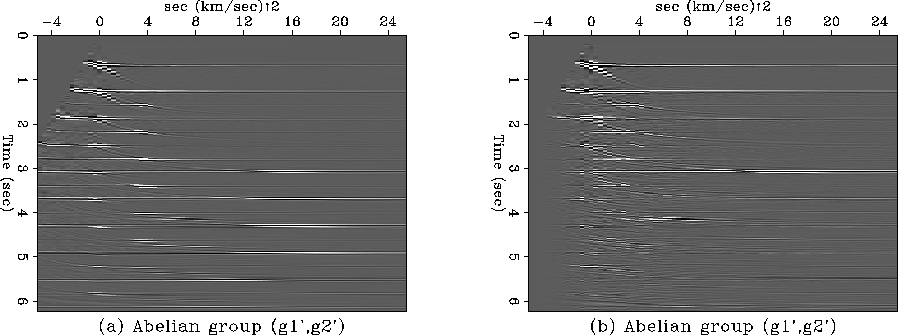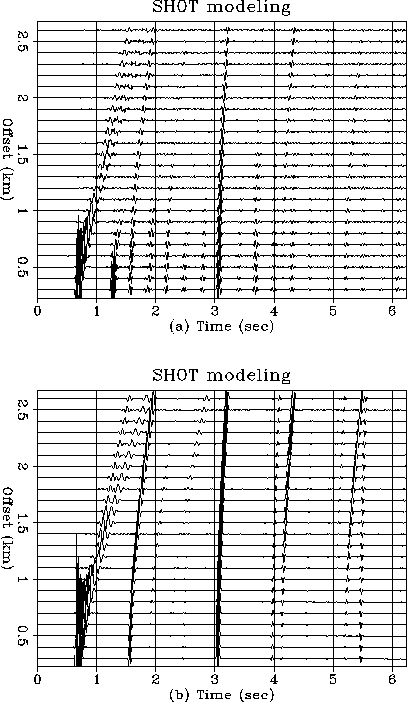




Next: Field data
Up: TESTING ON SYNTHETIC AND
Previous: TESTING ON SYNTHETIC AND
We apply the above direct velocity transform method
to map between the space-time
domain and the Abelian group (g1',g2') domain.
Figure 4 displays the synthetic data as in Figure 1, and the data after
velocity transform to (g1',g2') and back to the space-time domain.
The far offset data are attenuated by the velocity transform.
For all the mappings here, we use one-pass conjugate mapping. Conjugate
gradient iteration gives a better result, but is the last resort.
Figure 5 is the data in
(g1',g2') domain before and after gapped predictive decon.
On the gapped predictive deconned
(g1',g2'), we apply a cosine muting on the left of g2'=0.
Figure 6 shows the space-time
data after conjugate velocity transforming the deconned (g1',g2') data
in Figure 5b and
the original water-related reverberations-free data.
The reverberations attenuated section shows that at near offset
the first waterbottom multiple remains strong; because
the hyperbola curvature is large at near offset,
it maps to a large area in velocity space.
Its amplitude relationship in velocity space thus deteriorates.
The gapped predictive deconvolution does not work well here. The remedy to
this problem lies in further improved velocity transform.
SynMM
Figure 4 (a) is the input synthetic data
as in Figure 1; (b) is the data after conjugate velocity transforming
back from (g1',g2') in Figure 5a. The far offset data are attenuated by the
velocity transform.




 SynMMAbelian
SynMMAbelian
Figure 5 (a) is the Abelian group
data (g1',g2'); (b) is the (g1',g2') data after gapped predictive decon,
gap=550ms, filter length=550ms.




 SynMultAtten
SynMultAtten
Figure 6 (a) is the
water related reverberations
attenuated section; (b) is the Solid elastic modeling section
free of water related reverberations.










Next: Field data
Up: TESTING ON SYNTHETIC AND
Previous: TESTING ON SYNTHETIC AND
Stanford Exploration Project
11/18/1997



